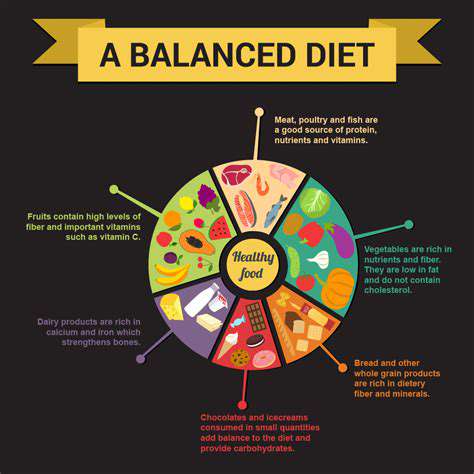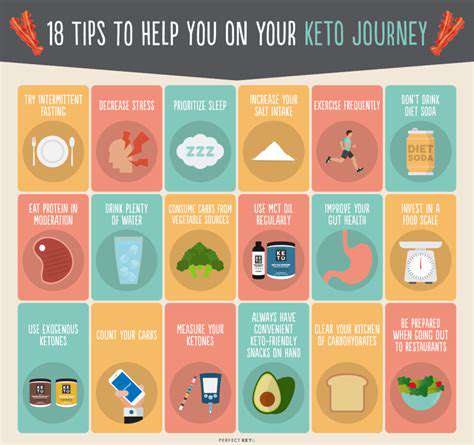Low Carb Dinner Ideas: Keto Friendly Chicken & Avocado Salad
Jun 14, 2025 / btwgardenmachine/
Key Ingredients & Nutritional Benefits

Protein Powerhouses
Protein plays a foundational role in tissue repair and growth, with numerous high-quality sources easily accessible. Options like lean meats, poultry, fish, and eggs deliver the amino acids necessary for muscle development and upkeep. Regularly including these foods in meals can profoundly impact overall vitality and wellness. Plant-based alternatives such as lentils, beans, and tofu provide not only protein but also dietary fiber, supporting digestive regularity and prolonged satiety. These make excellent additions to any well-rounded eating plan.
Venturing beyond conventional choices, nutrient-dense options like quinoa and chia seeds offer unique benefits. These lesser-known sources combine protein with valuable micronutrients, creating a more comprehensive nutritional package. Diversifying protein intake guarantees access to all essential amino acids, which serve as building blocks for countless physiological processes.
Essential Fats for Optimal Health
Often underestimated, beneficial fats perform critical functions in hormone synthesis, vitamin absorption, and cognitive performance. Foods like avocados, nuts, and seeds contain heart-healthy monounsaturated and polyunsaturated fats that support cardiovascular function and overall wellness. These lipids also contribute to neurological development and cellular maintenance. Regular consumption of these nutrient-packed foods can positively impact multiple aspects of health.
The omega-3 fatty acids abundant in fatty fish such as salmon and tuna play particularly important roles in brain function and inflammation reduction. These essential nutrients support cognitive abilities and immune system resilience. Additionally, incorporating healthy fats into daily meals helps balance cholesterol levels and promotes feelings of fullness, which can assist with weight control efforts.
Vitamins for Enhanced Vitality
These micronutrients serve as catalysts for countless biological processes, from immune defense to energy metabolism. Fruits and vegetables represent nature's multivitamins, offering diverse nutrients crucial for maintaining health. A diet emphasizing colorful produce can boost stamina and strengthen disease resistance, forming a cornerstone of balanced nutrition. Consuming a rainbow of fruits and vegetables ensures intake of comprehensive vitamin and antioxidant profiles.
Citrus fruits and berries provide vitamin C, essential for collagen formation and immune support. While sunlight triggers vitamin D production, dietary sources like fatty fish and fortified products help maintain adequate levels for bone health. These vitamins, along with their counterparts, work synergistically to maintain bodily functions and prevent nutritional deficiencies.
Minerals for Strong Bones and Muscles
These inorganic nutrients facilitate numerous physiological processes including skeletal integrity, neural transmission, and fluid regulation. Dairy products, leafy greens, and fortified foods supply calcium for bone density, while nuts, seeds, and vegetables offer magnesium for muscular and nervous system function.
Iron-rich foods like red meat, poultry, and legumes support oxygen transport via red blood cell production. These minerals form the foundation for physical endurance, proper organ function, and overall vitality. A mineral-rich diet contributes to robust bones, efficient muscles, and enhanced immune responsiveness.
Fiber for Digestive Health and Weight Management
This indigestible carbohydrate promotes gastrointestinal motility and prevents constipation. High-fiber foods also enhance satiety, making them valuable for weight control strategies. Whole grains, fruits, and vegetables serve as excellent sources that support both digestive health and weight maintenance.
Dietary fiber not only regulates bowel function but also helps stabilize blood glucose and supports healthy weight management. Including varied fiber sources in daily meals promotes general wellness and contributes to a balanced lifestyle. Furthermore, fiber nourishes beneficial gut bacteria, which play pivotal roles in overall health.
Hydration for Optimal Performance
Water participates in nearly every physiological process, from temperature regulation to nutrient transport. Maintaining proper hydration proves critical for both physical and mental performance. Adequate water intake throughout the day can dramatically enhance both energy levels and cognitive clarity. Proper hydration maintains blood volume and facilitates nutrient absorption.
Beyond plain water, herbal infusions and fruit-infused waters can contribute to daily fluid requirements. Water-dense produce like cucumbers and melons provide hydration along with valuable nutrients. Optimal fluid intake remains fundamental to comprehensive health maintenance.
Recipe Variations & Customization
Savory Variations
Enhance your chicken and avocado dishes with an array of savory enhancements. Traditional seasonings like garlic powder, onion powder, and paprika create a timeless flavor foundation that complements avocado's richness perfectly. Experiment with aromatic herbs such as rosemary or thyme for nuanced complexity. A dash of red pepper flakes introduces pleasant heat, while citrus juice cuts through the fat with bright acidity. Thoughtful seasoning with salt and pepper accentuates the natural flavors of core ingredients.
For more adventurous palates, consider incorporating roasted red peppers, sun-dried tomatoes, or sautéed mushrooms. These additions introduce deeper flavor dimensions, transforming simple preparations into gastronomic experiences. The versatility of these dishes allows for endless personalization to suit individual tastes and nutritional requirements.
Dietary Adaptations
This preparation method lends itself beautifully to various dietary modifications. Gluten-free diets can be accommodated by verifying all ingredients meet certification standards or substituting traditional breadcrumbs with gluten-free alternatives. Protein variations might include seafood or plant-based options for those following specific dietary patterns. Almond or coconut flour can replace conventional breadcrumbs for reduced carbohydrate content.
Vegetarian adaptations might feature marinated tofu or vegetable medleys in place of animal proteins, preserving the dish's satisfying qualities while aligning with dietary choices. Adjusting seasoning profiles allows further customization to personal preference. Always verify ingredient compatibility with specific dietary restrictions.
Serving Suggestions
Complement these dishes with thoughtfully chosen accompaniments for complete meals. Fresh greens with light dressings provide refreshing contrast, while roasted vegetables offer nutritional balance. Cauliflower rice serves as a low-carb alternative to traditional grains, maintaining dietary alignment.
Presentation options range from bedded salads to vegetable nests, allowing creative plating. Additional toppings like Greek yogurt or crumbled cheese introduce textural contrast and flavor complexity, elevating the dining experience through thoughtful composition.
Tips for Success & Additional Keto-Friendly Options

Understanding the Ketogenic Diet
The ketogenic approach emphasizes high fat, moderate protein, and minimal carbohydrate intake. This nutritional strategy induces a metabolic state called ketosis. During ketosis, the body shifts from glucose to fat metabolism for energy production. Potential benefits include weight management, improved metabolic markers, and therapeutic applications for certain conditions. Grasping these fundamental concepts helps optimize outcomes while minimizing potential drawbacks.
Planning Your Keto Meals
Strategic meal preparation proves indispensable for keto adherence. A well-designed eating plan ensures proper macronutrient distribution (high fat, adequate protein, low carbs) across all meals. Thoughtful planning facilitates carbohydrate control and informed food selections. It also promotes appropriate portion sizes, contributing to both weight management and nutritional adequacy.
Prioritizing Healthy Fats
Quality fats form the foundation of successful keto nutrition. They provide lasting energy, support endocrine function, and promote satiety. Nutrient-dense sources like nuts, seeds, avocados, olive oil, and fatty fish should feature prominently in meal planning. Selecting minimally processed fat sources over refined options ensures nutritional quality.
Tracking Your Macros
Monitoring macronutrient intake (carbs, proteins, fats) remains critical for maintaining ketosis. This practice requires understanding food composition and diligent intake recording. Various digital tools can simplify this process, enabling precise dietary management and helping maintain appropriate nutritional ratios.
Staying Hydrated
Adequate fluid intake supports all bodily systems and proves particularly important during dietary transitions. Proper hydration enhances metabolic efficiency and supports the ketogenic process. Daily water consumption should be prioritized, supplemented by herbal teas and other non-caloric beverages.
Managing Potential Side Effects
While potentially beneficial, the ketogenic approach may cause transitional symptoms like fatigue or digestive changes. Medical consultation is advisable before beginning this dietary pattern, particularly for individuals with pre-existing conditions. Professional guidance helps personalize the approach and address any concerns.